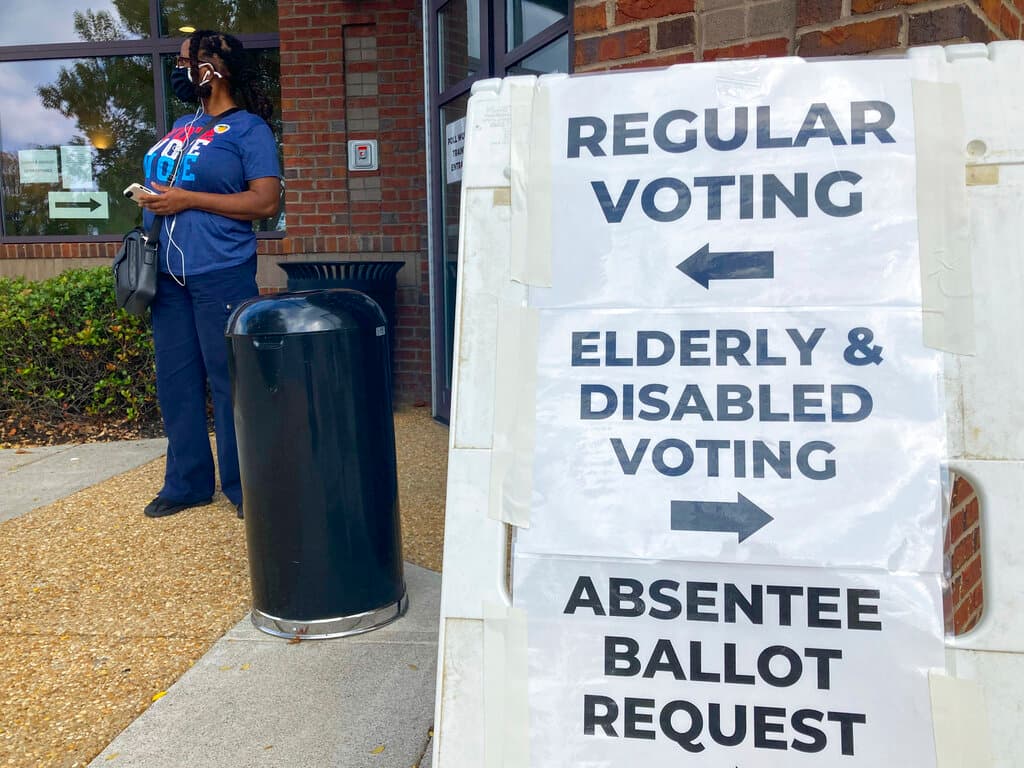Carville: Democrats Looking for Gains in Deep South Should Consider Mississippi
With Florida slipping away from the Democrats, as evidenced by the statewide election results of the last six years, is Mississippi a feasible alternative?

Following the Republican wave in Florida last month — one that delivered Governor DeSantis and Senator Rubio double-digit victories — some Democrats are giving up on the Sunshine State and looking for new opportunities in the Deep South.
A legendary Democratic strategist, James Carville, is saying Democrats would be “better off looking harder at Mississippi” than reinvesting in Florida.
Mr. Carville cites the state’s large Black population as a reason for hope for Democrats. Mississippi “is a state that is 37, maybe 38 percent Black. It only votes 30 [percent],” he said. “If you took your share from 30 to 38, that’s a lot of votes.”
Black citizens represent a higher share of the population in Mississippi than that in a southern state in which Democrats have had recent success: Georgia. Black Georgians make up less than 33 percent of the total population in that state.
With Florida slipping away from the Democrats, as evidenced by the statewide election results of the last six years, is Mississippi a feasible alternative?
A professor at the University of Mississippi, Conor Dowling, said that Democrats could have a real chance at winning statewide, but only if they put time and money into the state party infrastructure.
“There needs to be a lot of investment, like we’ve seen in Georgia in the last decade,” he said. “That’s unlikely to happen before the gubernatorial election next year, though.” He added that Mississippi Democrats’ fundraising and voter registration efforts “pale in comparison” to that of the state’s Republicans.
In 2020, President Biden won more than 41 percent of the vote in Mississippi. President Obama totaled about 43 percent in both 2008 and 2012. Democratic performance in Mississippi nearly mirrors that of Republican performance in Colorado.
In the 2019 gubernatorial election, the Democratic state attorney general, James Hood, lost by four points to Lieutenant Governor Tate Reeves. The last Democratic governor was Ronnie Musgrove, who served one term between 2000 and 2004.
While in Georgia 68.5 percent of Black residents are on the voter rolls, in Mississippi more than 83 percent of Black voters are registered.
Black voters in Mississippi aren’t the only key to success, however. Democrats consistently won the Black vote in Georgia by wide margins decade and after decade, but their weakness with college-educated suburbanites sank their chances statewide.
Until President Trump came along, that is. Nationwide, suburbanites who may have voted for Mitt Romney or John McCain abandoned the party. In Georgia, the story is no different. Suburbanites played a critical role in delivering the state for President Biden and Senators Warnock and Ossoff.
In 2012, Senator Romney won Georgia’s suburban Cobb County by 12 points. In 2020, President Biden won the county by more than 14 points.
Educational divides also are behind recent Democratic gains nationwide. Mr. Biden won voters with at least a college degree by 14 points, while Secretary Clinton only won them by 11 points in 2016.
The problem for Mississippi, however, is that it has fewer college-educated voters than Georgia. Georgians with at least an undergraduate degree constitute 32 percent of the population, while only 23 percent of Mississippians hold at least a college degree.
President Clinton’s first secretary of agriculture, Mike Espy, ran two strong races for the U.S. Senate in the last four years — a special election in 2018 and a general election in 2020 — but lost with 46.4 percent and 44.1 percent of the votes, respectively.
Mr. Dowling noted that Democrats like Mr. Espy could have won if not for a weak state party and low registration rates among Black voters. For Democrats to win, he said, there can’t just be a “one-off investment when there’s a high-profile race.”

